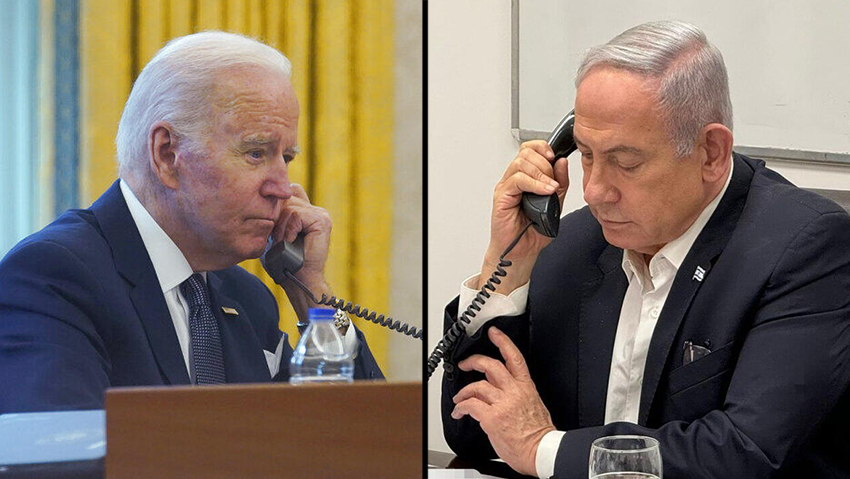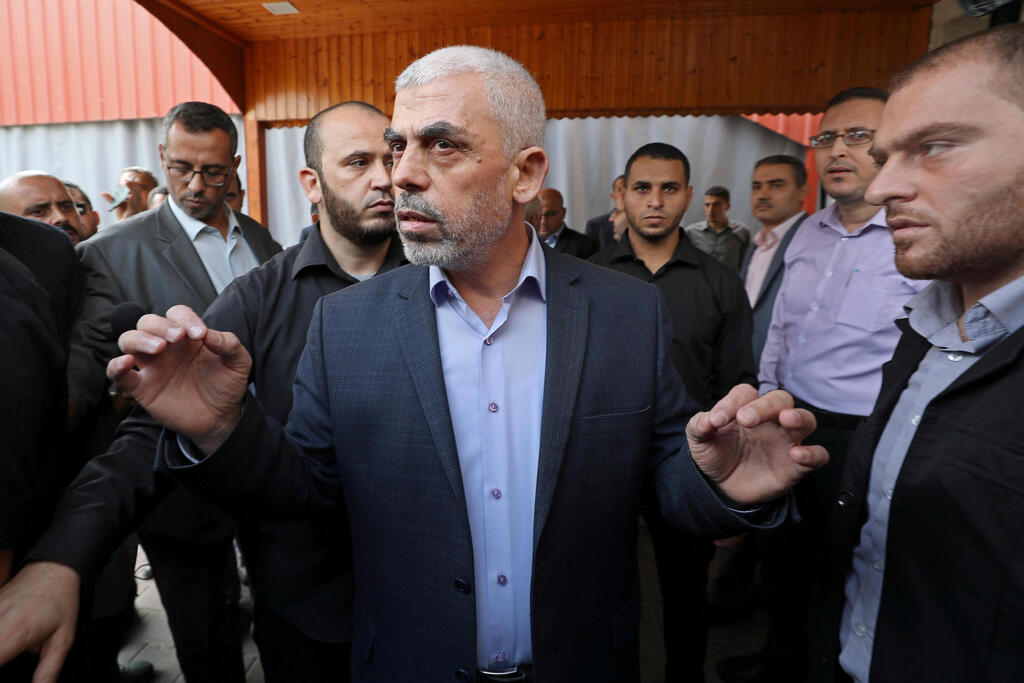Journalist Barak Ravid has revealed on Axios today that the Biden administration has postponed a scheduled ammunition shipment to Israel that was due last week.
According to two Israeli sources, there has been no official response from either the White House or the Prime Minister's office regarding this delay. This marks the first instance of such a delay by the U.S. since October 7, amid objections to a proposed ground operation in Rafah, a move Netanyahu has repeatedly said he's committed to.
2 View gallery


Tense relations between Biden and Netanyahu
(Photo: PM office Spokesperson, AP Photo/Susan Walsh)
An Israeli official commented, "The stream of security shipments from the U.S. to Israel is ongoing. While individual shipments might be delayed, the overall flow remains uninterrupted, and we are not aware of any policy suspending it."
On the eve of Holocaust Remembrance Day, Prime Minister Benjamin Netanyahu addressed the global criticism of Israel since the war began, especially concerning potential actions in Rafah.
"The first lesson of the Holocaust is this: if we do not protect ourselves - no one will protect us," he said. "And if we need to stand alone - we will stand alone. We will defend ourselves in every way, overcome our enemies, and ensure our security - in the Gaza Strip, on the northern border, everywhere."
As Israeli officials continue to indicate a ground operation in Rafah is imminent, Netanyahu underscored, "These heroic survivors are right. During the terrible Holocaust, there were great leaders in the world who stood by."
Netanyahu and Blinken
(Video: GPO)
During a recent visit to Israel, U.S. Secretary of State Antony Blinken reiterated America's opposition to any action in Rafah. Following their discussion, Netanyahu's office relayed that he had informed Blinken that the Rafah operation "is not conditional on anything," and he would not agree to a hostage deal that included ending the war.
A day later, White House spokesperson John Kirby told journalists that Israeli officials are aware of the fact that President Biden "is sincere" when it comes to potential adjustments to U.S. policy on the Gaza conflict. He emphasized this policy shift would likely materialize "should they (Israel) move ahead with some sort of ground operation in Rafah that doesn't take into account the refugees."
Ynet analyst, Nadav Eil, reported the U.S. has warned Israel that an uncoordinated extensive operation in Rafah could lead to further delays in weapon shipments and potentially a prohibition on the use of American weapons and ammunition. This refers to arms that can be restricted under U.S. procurement procedures.
In February, it was also reported the UK might suspend weapon exports to Israel if it proceeds with actions in Rafah. Subsequent reports indicated the U.S. was considering a similar step, which would represent a significant setback, considering Washington has transferred more than 100 weapon shipments to Israel since the onset of the war, and President Biden recently approved unprecedented aid to the IDF, including the transfer of shells and components worth hundreds of millions of dollars, as well as mine-clearing equipment and precision weapons.
The Wall Street Journal noted that Israel has given Hamas an ultimatum to agree to a deal within a week or face military action, following prolonged stalling by Yahya Sinwar.
Signaling how important it is for the Biden administration that the deal moves through, a weekend call with both Egyptian and Qatari mediators, additionally involved CIA chief Bill Burns. The progress culminated with even Hamas saying they were going to Cairo with "positive spirits".
That said, not everyone shares said optimism. During a visit to Israeli military forces in Gaza on Saturday, Defense Minister Yoav Gallant noted "worrying signals" indicating Hamas may not be progressing toward an agreement. "This suggests that an operation in Rafah and other areas of Gaza is likely to occur very soon," he said.






